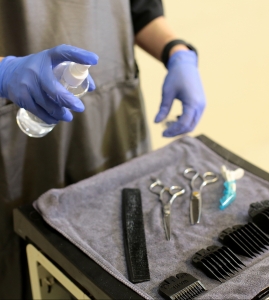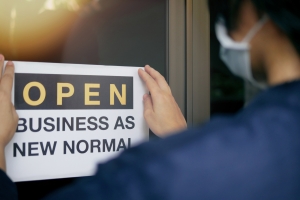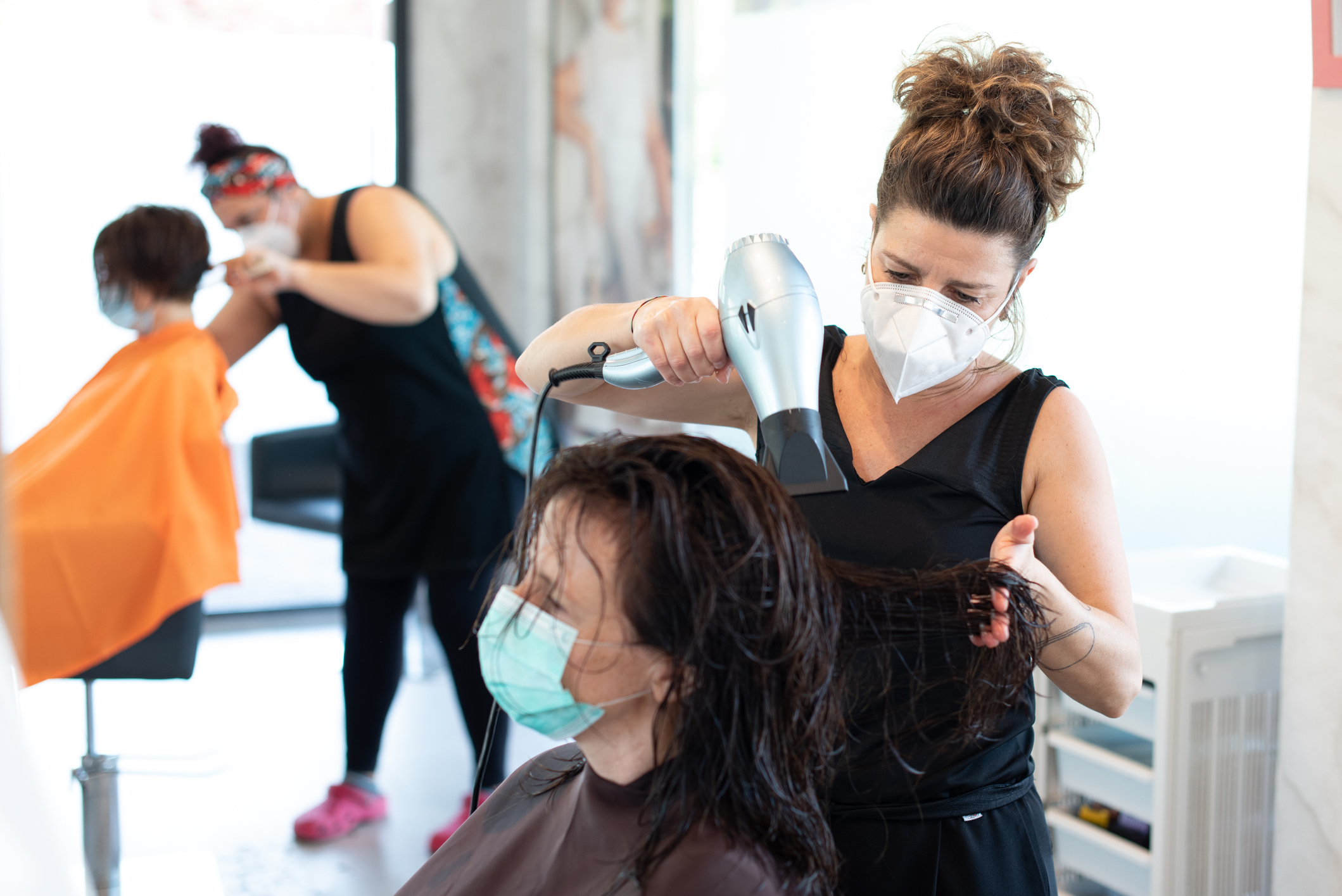By Merida Bourjolly, DPC Education Center President
ANXIETY OF COMING BACK
I am sure everyone has felt the impact of the COVID-19 Pandemic. This is the first time I have experienced a complete shut down in my industry due to a virus. Additionally, the lockdown provided an opportunity for a pause and a chance to rethink my priorities and what is meaningful.
From a financial perspective, this shut down taught me how to adapt to uncertain economic times. I am really grateful for technology that helped us connect virtually, provided an opportunity to work, and to make it through a stressful time. Sustaining a business without revenue is not the only financial undertaking I faced; before reopening, I had invested in masks, gloves and social distancing measures for myself and my clients. My need to provide for my family made me nervous about balancing my own health and their safety. Earning a living meant sending myself back into an environment that left me exposed while hearing the COVID-19 numbers were increasing.
Grooming is a treasured jewel to many, there is no question that clients miss their stylists. Clients reached out during the lockdown, and a few clients asked me to make house calls which would have put my health at risk. Few professional encounters require prolonged bouts of close contact like appointments at hair or beauty salons. Customers are clamoring to fix gray roots, shaggy beards and chipped nails in reopened salons after months in lockdown, despite stark changes to how these services can now be offered.
HOPING THAT EVERYONE WOULD BE TRUTHFUL ABOUT THEIR CONDITION
My first day back to work was filled with so many emotions such as being excited to return to some sort of normalcy. Yet my mind was filled with anxiety of being at risk of contracting COVID-19. I was happy to get back to what I love doing which is servicing my clients. I felt comfortable and reassured to return to the salon with the extreme measures I have taken to make sure the clients and myself are safe. In return I hoped that my clients would honor and take the same precautions I was taking to not expose them to COVID-19 and be truthful to protect me.
As a transplant recipient and a Licensed Cosmetologist, I have a new level of anxiety now of catching the virus from people who do not seem sick or have symptoms. I might be exposed to the virus when I provide services to my clients. As stylist we are in close contact with clients, coworkers, vendors, service providers, and delivery people. Transplant patients may be at higher risk for severe complications or fatality from COVID-19 because people who receive a donor kidney are often on immune-suppressing medications making our immune system low. This feeling caused me to research taking further precautions. Such as wearing longer sleeve clothing, supplying the clients with face shields and disposable capes.
AFTER A COUPLE OF WEEKS MY BRAIN IS ACCUSTOMED TO WHAT TO DO, TO NOT LEAVE MYSELF EXPOSED DUE TO TAKING ANTIREJECTION DRUGS TO AVOID COMPROMISING MY HEALTH.
It is especially important, to create a safe space by implementing responsible safeguards and to follow all of CDC guidelines when servicing the clients, especially since I am in the “personal care services” category. To lower the chance of getting the coronavirus that causes COVID-19, transplant patients should follow the CDC’s guidance on how to avoid catching or spreading germs.
I require all who enter the salon to wear a mask and get their temperature checked. I presently wear a face shield and a mask while servicing clients. I do not service walk-in clientele; clients must call in their appointments.
We also have a questionnaire, that customers must fill out upon their arrival. This questionnaire includes detailed questions of a clients travel, in and out of state, their contact or exposure, and all temperatures recorded and kept on file. If the mask becomes wet, visibly soiled, or contaminated at work, we provide new ones to the clients.
I do my best to remember and practice not touching my face, mouth, nose, or eyes after touching different surfaces or frequently touched items such as tables, sinks, combs, cash, or merchandise within the salon. I practice staying at least 6 feet away from clients and coworkers, when possible. We limit gatherings inside the salon, we leave every other styling chair empty and clients are not allowed to bring additional people to their appointments.
Some of these precautions were not difficult for me to get use to because as a transplant recipient wearing a mask in public and at work was a precaution I was familiar with.
We clean and disinfect frequently touched surfaces between each client such as styling chairs, hair washing sinks, massage tables, credit card devices, keypads, all non-porous multi-use tools, such as shears, clippers, nippers, brushes, combs, etc. and other items that clients routinely touch.
It took some time to get use to cleaning and disinfecting the following areas or items on a routine basis and daily such as countertops, doorknobs, toilets (including handles), tables, light switches, phones, faucets, bathroom sinks, keyboards, etc.
I wash my hands regularly with soap and water for at least 20 seconds. I use an alcohol-based hand sanitizer containing at least 60% alcohol if soap and water are not available.
We have signs up that say “Please cover your coughs and sneezes and wash your hands regularly.” Our signs also ask clients if they are experiencing symptoms to stay home.
I ALSO REALISED THAT THE PEOPLE THAT COME TO ME MAY HAVE THE SAME ANXIETY AND FEARS OF GETTING THEIR HAIR DONE.
FEARS OF GETTING THEIR HAIR DONE.
Hair salons reopen, and clients rush back. Many beauty salons and barbershops are booked solid with appointments, showing how much grooming is a treasured experience. Perhaps our collective desire for a haircut or nice nails is not so surprising. For many segments of society, beauty services are central to a sense of identity. And heading back to salons after a collective social trauma could be one way to recover some normalcy. In most states, hair salons and beauty parlors reopened earlier than other businesses that were deemed nonessential.
The COVID-19 pandemic has created new challenges in the ways many people work and connect with others, which may raise feelings of stress, anxiety, and depression. Communication was important – explaining to clients that their safety is important to me and why it is important to have protocols implemented to keep all of us protected. That way we can help the customers feel comfortable returning to the salon. Now that COVID-19 vaccinations are more available to more groups of people, they may bring a peace of mind to everyone.




